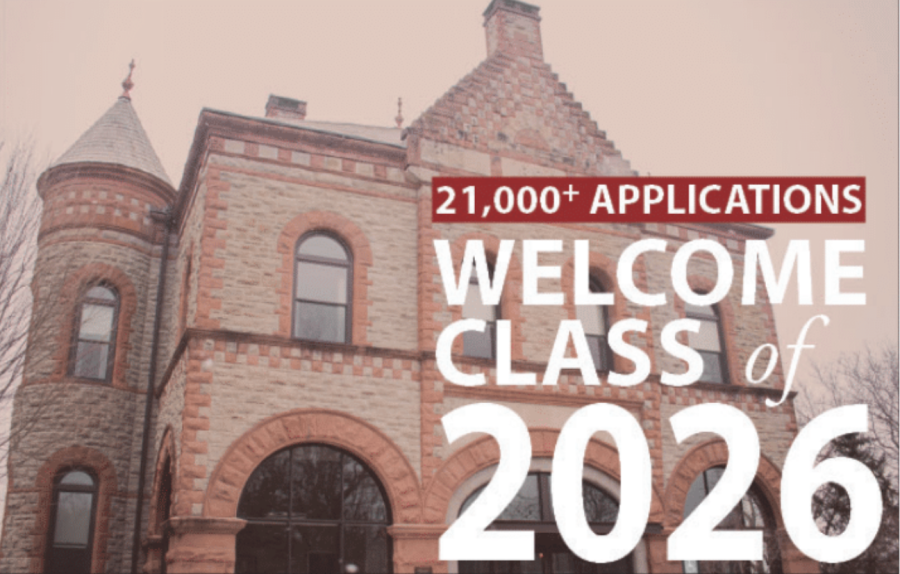Colgate University Releases Admission Decisions for Class of 2026, reaching a record number of applicants this year
Admissions decisions for regular decisions applicants in the incoming class of 2026 were sent out on Wednesday, March 23. The notification time stayed true to Colgate’s tradition of honoring the number 13, with the university releasing their decisions to prospective students at exactly 8:13 p.m. EST.
Last year, Colgate received its largest number of applicants in school history with 17,533 applications for the class of 2025. This year, Colgate hit a new record of applications, with over 21,000 applications for the class of 2026. Gary Ross, the Jones and Wood family vice president for admission and financial aid, expressed his excitement for seeing the growth in applications over the last two years.
“It speaks volumes on how well Colgate is being viewed by the very brightest and most capable college bound students from all around the United States and all round the world,” Ross said.
According to Colgate alumna Brittney A. Dorow ’17, who serves currently as the senior assistant dean of admission, and Assistant Dean of Admission Keaton Hain, this year’s applicant pool is overall more academic and diverse than in past years.
“There was notable growth in applications from the southwest region of the United States and we continued to see an increase in applications from countries outside of the U.S,” Dorow said.
The admissions team expressed their desire to make Colgate a more realistic and accessible option for prospective students, as reflected in their Third Century Plan, by valuing diversity, equity and inclusion.
“With things such as test-optional and our office’s QuestBridge partnership, there’s a wide variety of new students considering Colgate among their options,” Hain said.
The COVID-19 pandemic highlighted many of the barriers those from low-income backgrounds face when it comes to standardized testing, such as access to adequate tutors and resources. Colgate’s partnership with QuestBridge is in accordance with the Third Century Plan as QuestBridge works with low-income students and supports them in attending the nation’s leading colleges through scholarships and other resources. Colgate is working toward ensuring that the school is made up of students from diverse backgrounds and perspectives, regardless of the different barriers they may face.
Due to their larger applicant pool with increased diversity, and higher academic quality, the application process was more selective than in previous years.
“We absolutely became more selective. Our acceptance rate will be lower than in previous years,” Dorow and Hain said.
The Office of Admission is committed to a holistic approach when reviewing applications, meaning all aspects of students are evaluated, which includes academic, personal and contextual information.
“We operate using committee-based evaluations with two admission officers reviewing together and making a joint decision on the applicant,” said Dorow and Hain. This helps to prevent implicit bias through their commitment to the Diversity, Equity and Inclusion (DEI) plan, according to Dorow and Hain.
With COVID-19 restrictions loosening for campus tours and schools shifting back to in-person instruction, admissions processes are beginning to return to normal in the post pandemic world. During the 2020-2021 admissions cycle, the rise of test-optional policies in response to the pandemic correlated to many top colleges receiving a surge in applications.
That trend has continued into the 2021-2022 school year, with data collected by the Common App displaying that applications submitted in early November were already up 20 percent from the previous year. This raises the question of whether several of these colleges will make a permanent change for applications to be test-optional, as well as raises questions regarding possible implications of this decision.

Mehek Singh is a senior from Baltimore, MD concentrating in international relations and minoring in global public and environmental health. She has previously...

Mary Grygier is a senior from Ridgewood, NJ concentrating in psychology and film & media studies. She has previously served as a contributing photographer....







